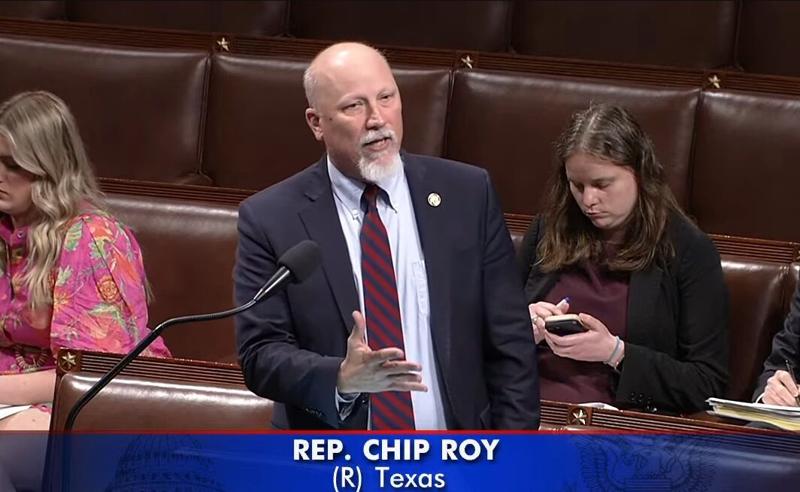As the final House committees prepare to markup the lion’s share of the budget reconciliation package, nearly three dozen fiscally conservative lawmakers are reminding party leaders to fulfill their spending reduction promises.
The $5.8 trillion concurrent budget resolution, which gives congressional committees funding directions to pass President Donald Trump’s tax and other policy goals, barely passed both chambers in April. Fiscal hardliners only backed it on the promise of deep spending cuts.
In a recent letter sent to House Speaker Mike Johnson, R-La., and Majority Leader Steve Scalise, R-La., 32 Republican lawmakers reiterated that “our support depends, at minimum, on the bill’s strict adherence to the House framework for instructions contained in the concurrent budget resolution.”
“Under the House’s framework, the reconciliation bill must not add to the deficit,” the lawmakers wrote. “We must hold that line on fiscal discipline to put the country back on a sustainable path.”
The House’s original budget resolution, operating under a current law baseline, had priced extending President Donald Trump’s 2017 tax cuts for the next ten years at $3.8 trillion. It had instructed House committees to find at least $1.5 trillion to finance the costs, assuming that $2.5 trillion in economic growth would offset the rest.
The Senate’s revision to the House’s blueprint kept the House’s $1.5 trillion savings target but established only a $4 billion savings floor for its own committees, though Senate leaders promised to find $1.5 trillion in spending cuts as well. Most importantly, the concurrent resolution makes Trump’s tax cuts permanent.
To justify the cost of permanent extension, the Senate adopted an accounting method called current policy baseline, which treats the extension as a continuation of current law rather than new policy. In this way, the Senate-revised resolution theoretically subtracted $3.8 trillion from the budget’s actual $5.8 trillion price tag.
Fiscal hardliners received promises from Johnson and others that any additional spending increases above the $2.5 trillion in projected economic growth will be offset.
In practice, that means committees must find $2 trillion in cuts for enough Republicans to support the final budget package.
Maya MacGuineas, president of the Committee for a Responsible Federal Budget, praised the authors of the letter for holding the line but added that the final budget package, operating under the concurrent resolution, will still add trillions to the national debt and deficit over the next decade.
“We absolutely should not pass any legislation that adds to the debt, and we encourage lawmakers to focus instead on a plan to reduce the national debt while fully offsetting any tax cuts or spending increase,” MacGuineas said. “But should lawmakers insist on moving forward with additional borrowing under reconciliation, they should at an absolute minimum abide by the House framework.”
But even as those lawmakers push for steep cuts, other Republicans are urging leaders to protect entitlement programs like Medicaid, where hundreds of billions in savings could be found.
A dozen Republicans even sent Johnson and other leaders a letter, saying they “support targeted reforms to improve program integrity, reduce improper payments, and modernize delivery systems to fix flaws in the program,” but that they “cannot and will not support a final reconciliation bill that includes any reduction in Medicaid coverage for vulnerable populations.”
Experts are split on whether changes to Medicaid would necessarily cause harm, but The Center Square’s Voters’ Voice poll, one of only six national tracking polls in the United States, shows that the vast majority of Americans do not want any spending reductions to the program.







